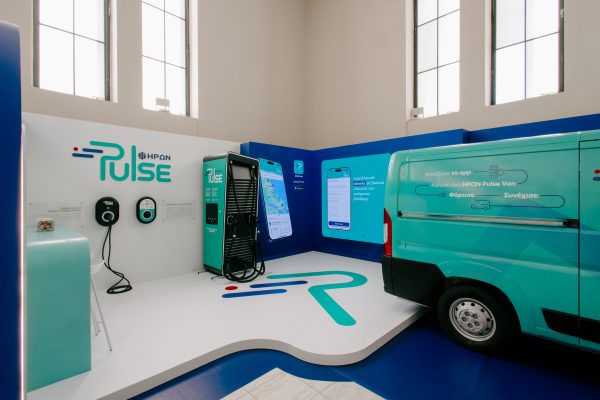
Researchers in Britain, led by a Greek woman from the diaspora, have developed an innovative artificial intelligence system that can recognize the first signs of dementia in the brain before patients even have the first symptoms and before neurologists can make a diagnosis. The system, which does not need more than one imaging of the brain to draw conclusions, thanks to a special algorithm, has already begun to be tested clinically, although it is too early to say when it will be possible to use it in practice.
The algorithm has been “trained” with thousands of brain images of people with dementia, so it can then make comparisons when asked to “read” a new brain image. It is able to recognize early signs of dementia that can not “catch” the eye of even a specialist neurologist, thus paving the way for the detection of neurodegeneration of the brain in time, several years earlier than is possible today.
Researchers, led by Professor Zoe Kourtzis of the University of Cambridge and the Alan Turing Institute, who created the system, according to the BBC and the British Guardian and The Independent, are optimistic that this will be very helpful. As Dr. Kourtzi stated, “if we intervene in time, the treatments will be able to start earlier and slow down the progression of the disease, while at the same time a bigger brain damage will be avoided”.
Preclinical tests have shown that the system can diagnose dementia even when there is not the slightest obvious sign of damage to the brain. It can also predict whether dementia will remain stable for many years and develop sooner or later.
Clinical trials at Cambridge’s Adenbrook Hospital and other UK clinics, involving about 500 people and led by Cambridge-based neurologist Dr Tim Rittmann, will show how “the system” works in practice. As he said, the new “smart” system is “a fantastic development”.
Ms. Kourtzi studied Experimental Psychology at the University of Crete and received her PhD in Cognitive Neuroscience from Rutgers University in the USA. He did postdoctoral research at MIT and Harvard, specializing in Cognitive Neuroimaging, and then conducted research at the German Max Planck Institute for Biological Government and at the British University of Birmingham. Since 2013 she has been teaching Experimental Psychology at the University of Cambridge and is considered a specialist in Cognitive Computational Neuroscience, being a pioneer in the use of Artificial Intelligence in mind and brain health.
The development of algorithms for clinical use is a rapidly growing field internationally, “marrying” computer science with Neurobiology and Medicine. Various “smart” systems have already been developed for the early diagnosis – from imaging tests – of various diseases.
Latest News

Capital Link Forum Highlights Greece’s Economic Resurgence; Honors BoG Gov Stournaras
Capital Link Hellenic Leadership Award recipient, Bank of Greece Gov. Yannis Stournaras, an ex-FinMin, was lauded for his pivotal role during Greece’s economic recovery

Tourist Spending in Greece Up by 14%, Visa Card Analysis Shows
Greece’s capital Athens emerged as the most popular destination, recording a 17% increase in transactions with Visa cards, surpassing even the cosmopolitan island of Mykonos.

Inflation in Greece Unchanged at 2.4% in Nov. 2024
The general consumer price index (CPI) posted a 0.4% decrease in November compared to the previous month

2024 Christmas Holidays: Extended Shop Hours Schedule
The 2024 Christmas Holidays extended shop hours schedule commences on Thursday, December 12 and runs until the end of the year.

ELSTAT: Seasonally Adjusted Unemployment Down in October
The number of employed individuals reached 4,284,694, an increase of 67,723 compared to October 2023 (+1.6%) and 22,002 compared to September 2024 (+0.5%).

Greek PM’s Chief Economic Adviser Resigns
In the post on his Facebook page, Patelis did not disclose the reasons that led him to step down.

“Masdar Invests in the people of Greece and in the vision of TERNA ENERGY”
Four messages from the CEO of Masdar, the Arab renewable energy giant, after its acquisition of 70% of TERNA ENERGY

Lloyd’s List Greek Shipping Awards 2024: Honors for leading companies and personalities in the Greek shipping sector
20 awards presented at the 21st annual Lloyd's List Greek Shipping Awards

Syria’s Bashar al-Assad, His family Granted Asylum by Russia
Reuters also reported that a deal has been struck to ensure the safety of Russian military bases in the war-ravaged country

Greece to Introduce Artificial Intelligence into Its Education System
Currently, Greece is taking its first steps to bring AI into classrooms through the AI4edu program, which is being co-funded by the European Union















![Χειμερινή εξοχική κατοικία: Οι Ελληνες γυρνούν την πλάτη παρά την πτώση των τιμών [γραφήματα]](https://www.ot.gr/wp-content/uploads/2024/12/Capture-19-90x90.jpg)

























 Αριθμός Πιστοποίησης Μ.Η.Τ.232433
Αριθμός Πιστοποίησης Μ.Η.Τ.232433